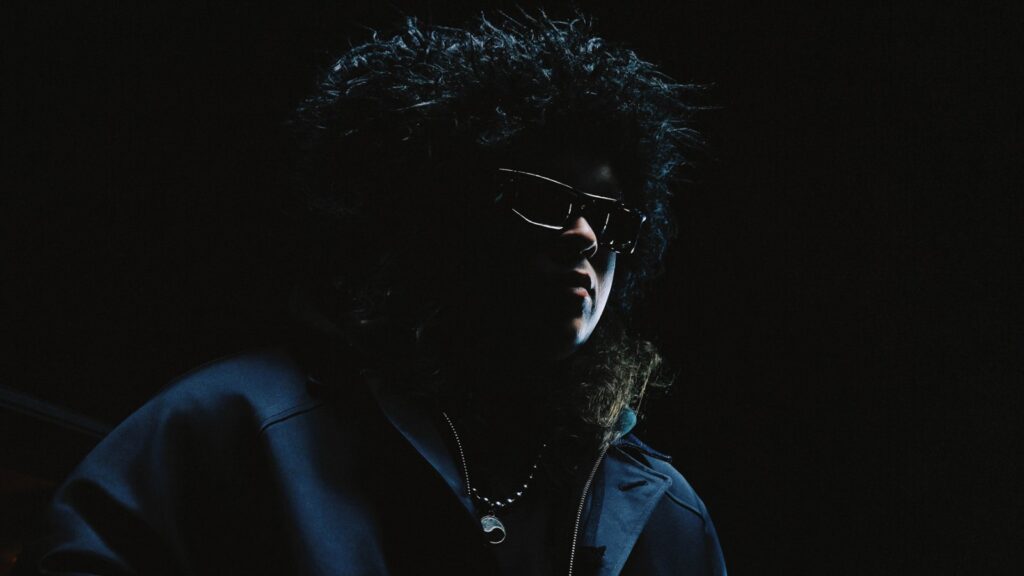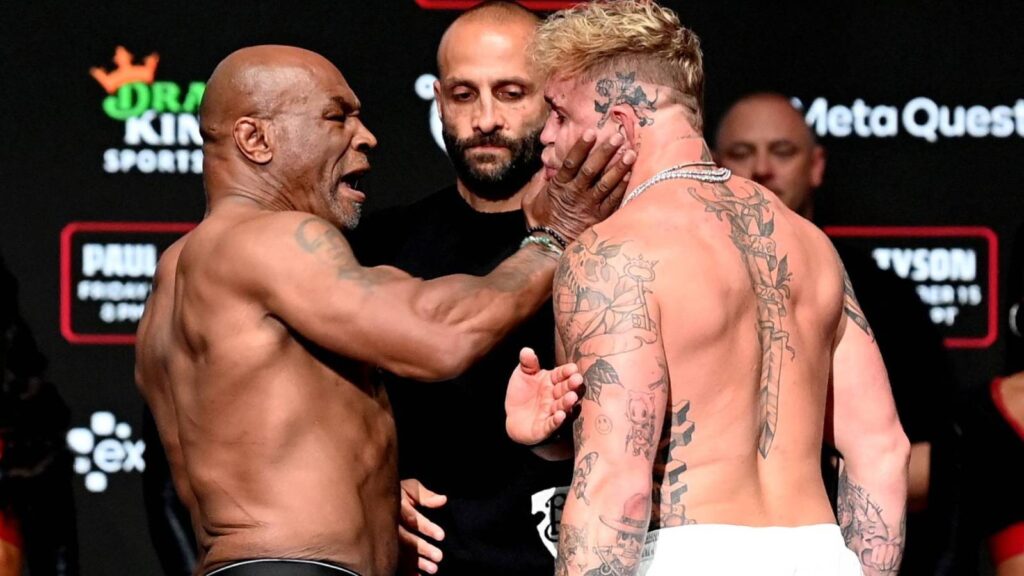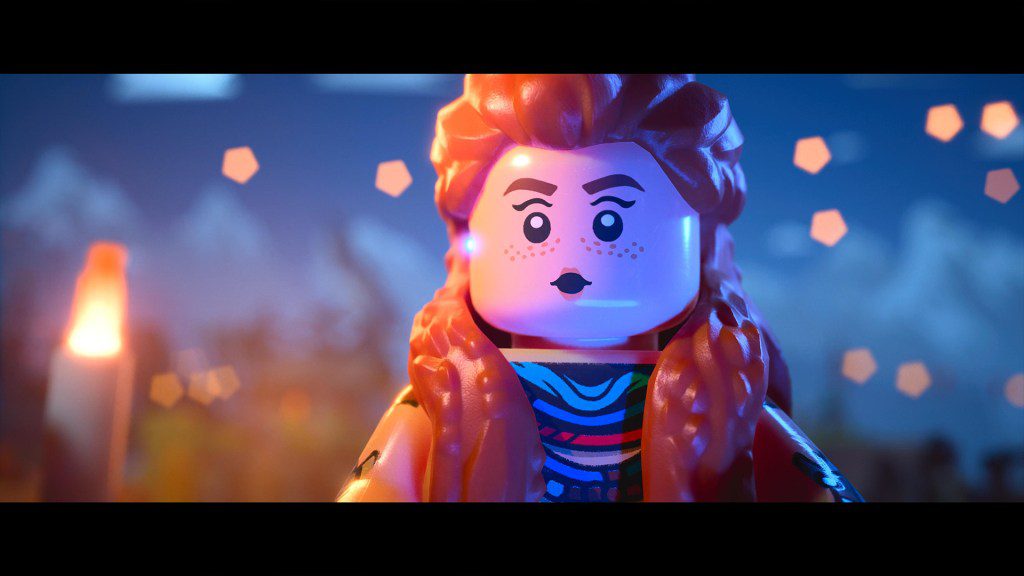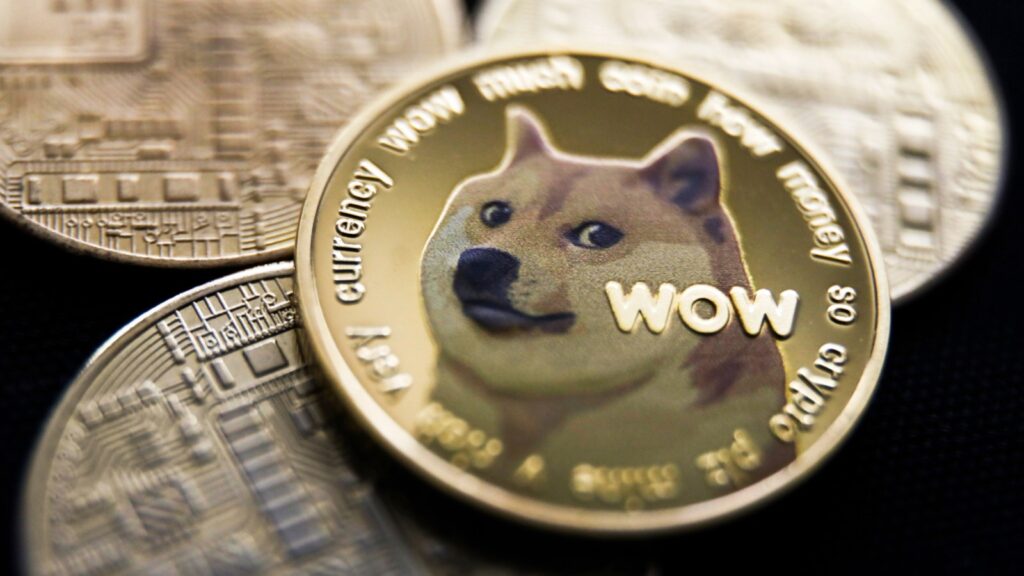He Made His Mark on Kendrick’s ‘Damn.’ Now TDE’s Zacari Is Ready for His Moment
“Love.,” the four-time platinum single from Kendrick Lamar’s Pulitzer Prize-winning opus Damn., was made an inescapable earworm and a breath of fresh air with a timeless hook from Zacari. At the time, the young singer was not yet signed to Kendrick’s label, Top Dawg Entertainment, but was managed by TDE co-president Moosa Tiffith. Back then, his discography had only consisted of a few tracks on SoundCloud. “I [was] still figuring out how even to record and what type of music I want to make when that happened,” he tells Rolling Stone.
More than seven years after that breakout hit, Zacari is releasing his debut album, Bliss, featuring Ty Dolla $ign, Isaiah Rashad, Doechii, Blxst, Ab-Soul, Beam, and James Fauntleroy. He’s been working on it all this time, but has also released a few projects — including an excellent EP, Run Wild, Run Free, plus guest spots on modern classics like Black Panther: The Album and SiR’s Chasing Summer. “Over these past few years, TDE [put] me in the position to always be in the studio, be around great artists, and see how they make their albums.”
Indeed, time isn’t always of the essence in a camp where their biggest superstar spent five years between her groundbreaking debut and monster sophomore album. Now, Zacari has something beautiful and personal on his hands with Bliss; taking influence from Kanye West, Mike Dean, and Lil Uzi Vert, it’s trippy, boisterous, soft, and serious all at once.
“Truth Is,” a standout on the album, is a bold revelation four years in the making. It’s searing and grand with synths from Skrillex made during a pandemic summer camp at legendary music exec Rick Rubin’s Shangri-La studio and a seamless beat switch. It’s also grounded and bare as Zacari confesses, “I’m ashamed to admit that I’m afraid, I’m a fraud, I’m a failure.” He says it came from a relationship but also embodies how he’s generally felt about himself at times. Here, Zacari explains why “Truth Is” echoes what many women see as frustrating excuses from men who love them, producing Bliss along industry heavyweights, and how he spent the night of Kendrick Lamar’s victory lap show after World War Rap.
What kind of input did you get from your labelmates at TDE on your debut album?
Just a lot. The title track came from the song “Bliss” that me and Isaiah [Rashad] did a couple years ago. We had a TDE studio lockout at The Mix Room for a few weeks. Before I even knew ScHoolboy Q, Moosa had talked to him [for me]. I think he was on the tour for [Blank Face] and he would let me use his studio in his backyard when we didn’t have a recording space. Some of the songs that are on the album to this day, were worked on in that backyard. I used to live with [Ab-]Soul; a full circle moment was watching him make his album [Herbert] and then him giving me a verse for mine. Soul has always been there for me.
How did you end up living with Soul?
It was really Moosa. I’m pretty sure it was like 2017, 2016. When he started managing me, he put me in this artist house that had a studio in it. People would be in and out of that house all the time, so Soul was there for a few months and yeah, we just got to lock in in the studio in the basement. He was one of the first people I really connected with from TDE, and this was before I even got signed, a year before it. Moosa was managing me for almost two years before he even brought me to the label.
You have a great song, “Believe,” with Doechii on here. What was making that with her like?
Oh man, Doechii is so fucking talented, it’s crazy. Yeah, that was when Moosa first started bringing her around the camp. I had that song for a while with just the hook too, and I wasn’t sure what I wanted to do with it. When Doechii did her version, she inspired me to finish mine ’cause I didn’t even really have it done yet. I knew I liked the song, but it was just missing something and she killed it. The way she can flip between her melodies and rapping is pretty crazy.
Do you typically tinker with your songs over a long period of time, or would you say that’s particular to this project?
I think for this album, that’s been a theme. I find concepts or ideas of the song that I fall in love with that I’m like, “Okay, this is for the album,” and then I just take my time with it from there. Songs like “Reverse,” I had started maybe four years ago, but maybe two years from then, we replaced the guitars and recorded some stuff somewhere else. And then even “Truth Is,” I had whole different keys and chords on it for such a long time, and then so many years later, I meet Skrillex and he replays the keys live and stuff like that. It’s just all about timing. Once I find a song that I love, I don’t feel super pressured to finish it until I feel like it’s right.
Do you feel like that’s at odds with the way the music industry works right now?
Definitely at odds, for sure. Right now, it seems like a lot of quantity and short form, so it’s a little difficult. I try not to think about that too much just because I’ve seen how a lot of great artists work and I just don’t feel pressured. Especially for this first album, I wanted to really dive deep into these new sounds, and I think I’ve learned so much over these years that it’s going to be easier for me next time. Features and EPs and singles, too, have carried me over, so that’s helped me feel less pressure to just throw it out there.
Yeah, TDE isn’t necessarily known for just doing the quantity thing, so it’s like you’re saying being rooted in that and seeing other artists just work on their craft is making you more comfortable taking the same approach.
Yeah, it’s like no microwave talent. It’s been in the oven. That’s how we look at it. That’s what we say.
You said tinkering with a new sound. How would you describe Bliss, sonically?
I think the big thing was all these sounds like Kanye, Mike Dean, and even Uzi and Carti – these big sounding basses with these big drums, I wanted to figure out how I could get my voice on beats like these and do them my own way. Because before LA, it was just me and my guitar [in Bakersfield, California], recording and singing. Over the past few years, I really fell in love with producing. I really fell in love with engineering – just textures and tones and playing with [them].
Teddy Walton was a big part of helping me find my sound in this space. Aaron Bow, also a huge one. Mike Hector, Jacob Olofsson, just so many talented producers. James Fauntleroy. I’ve touched a lot of these songs, too. In “Reverse,” [I played] the guitars, or “Ave Maria,” I started the first key melody. On “Destiny” and “Ave,” I just chopped up the chords and sounds and then brought people in to do bass and drums. Some songs, I’ll just do some transitions towards the end in post-production. So yeah, I’ve touched quite a bit of these songs on this record. Even “Believe” with Doechii, that switch up at the end, I did myself.
How about thematically?
The title is “Ignorance is Bliss.” Visually, the way I see it is like a sun and moon separate, and then when an eclipse happens and it blocks your sun, it’s blocking your light. It’s like this weird space that you can be in in ignorance where it’s like, how long can you let it go on? And it’s just about my journey over the past few years and growing and learning and moving through things alone, growing through fear, and just living in that ignorant place and coming out
Why do you describe it as ignorant in your own life?
You come out here and you grow and there’s just so many things people don’t teach you about, whether that’s relationships or even faith and religion. It’s just about figuring things out for yourself and the growing pains that go along with that.
When you say you come out here, do you mean LA in particular or do you just mean growing up?
LA and growing up. Before LA, I was in high school and then I went and worked in Alaska for a few summers, and then I moved here with a couple friends and went to music school.
At what point did you get connected to TDE?
That was maybe a couple years ago. I met J-Louis from Soulection. He’s also a major producer on this project and helped me find my sound. I met him early on and we had dropped a song on SoundCloud. It went crazy. The first night we met, he started working with Bryson Tiller on Trapsoul. I would drive him to the studio and just hang out in the sessions with my saxophone. It was a little bit easier to get into sessions that way instead of coming in and crashing as a new artist.
We would go to the studio house that they had had for Bryson, and I remember he had left for a week, so it was just me and J-Louis there. And I think Tunji [Balogun, now CEO of Def Jam] had sent Isaiah Rashad through with Moosa, so I would play some saxophone on a lot of Isaiah stuff, just at that house chilling. Moosa took my number as a saxophone player, and then I would just follow up with him, and eventually I got to play him some of my music and asked him if he’d manage me. That was it from there.
Tell me about “Truth Is” in particular. I think the reason it struck me is ’cause it’s so vulnerable and very bare in your insecurity. Where did that come from for you?
It came from a place of just being in a relationship and being so in love with someone and thinking that they’re too good for you – having anxiety about the future when things feel so good that it’s like, “Damn, how long can this last? And how can I be a person that’s good enough for this person?”
I’ve just always had problems talking about my emotions when it comes to things like that. I just put it into the music. It’s talking about my fear in relationships, where it’s like, “Damn, I don’t feel like I’m in a position to be right for you or to be good enough for you.” I feel like it’s a fear a lot of men have.
Yeah, I was actually going to say that. I hear this a lot from men in particular or women complaining about men saying this. Why do you think that is so common?
I’m not sure. I don’t know what it is. I feel like when a man falls in love with a woman, they just want to give them everything they deserve, but at the same time, they… I was also younger too…It’s weird when you fall in love, ’cause you have two options. It’s either going to be you’re end up really hurt or you’re going to be together and in love forever. That’s where that fear comes from.
When did you write this song?
About four years ago.
Do you still feel the same? Do you have similar fears?
I definitely still have those similar fears.
Are you in the same relationship?
No. That relationship ended in the pandemic. Fear and pain [came] from those times too. It was like, I was doing festivals and working on this album and getting ready to drop it, and then all of a sudden, you get two years of just stuck in the house with your head spinning. So that also opened the door for some of these darker sounds and tougher subjects.
I was wondering if the song is only applicable to your romantic life. I wonder if it’s how you might feel about your career or any other aspects of your life?
Yeah, career and even my faith and religion, just the person I want to be. And that’s what this album is, figuring it out. I don’t know if there’s a ton of answers in this album, but there’s lots of questions. That’s something I’ve always been inspired by, looking for more questions in life.
What is your faith practice?
Right now, it’s so cliche, but the “God is love” thing is huge to me and I think that’s part of the reason why I even came to this label. When I’ve talked to Soul and Dot [Kendrick Lamar] about things like Hiipower, where it’s like you put all these religions in a pot and you find God there. I feel like you find God wherever love is.
But that was hard for me coming up in the Christian Church. That’s where I fell in love with music. That’s where I found that music can have purpose, so that was a hard struggle for me. It’s different now because we have access to so much knowledge and finding things out for ourselves, and I think if love’s there and acceptance is there, I feel like that’s where God is.
That’s really beautiful. My family is Muslim, but I didn’t grow up very religiously. We just celebrated Ramadan and that was it. For a long time, I felt a little like an atheist, I felt a little agnostic, and it’s like, lately, I feel like my relationships are really a guiding spiritual force for me. There was a point where my friend was like, “Oh yeah, I made an altar. I’ve been chatting with my ancestors.” And I was like, “Oh, well, I’ve never asked those niggas for anything or done anything for them ever before. I feel like I can’t talk to them now.”
Yeah, its all that. Even praying, it’s like, how real is it to you? How do you feel? What are you thinking of when you think of God and how do you feel when you’re talking to people you love and learning and growing? I feel like God is in all those things.
Yeah, that’s really lovely. I want to go back to the thing that you raised about men in particular in cishet relationships having this idea of not feeling good enough. What made you feel like you might not be good enough? It sounds like part of it was your inability to express yourself.
Yeah, my inability to express my emotions and talk about my feelings like that. But also, it’s like you’re out here trying to make a music career. You’re gone for so long, you’re staying up, sleepless nights. It’s like sometimes you can enter this darker mindset of, “I just need to hustle and I just need to get to where I want to go. I can’t really get distracted either.” And then it makes you… At least me, it made me a hard person to be around sometimes. That was also a part of it.
That’s so interesting. I think a lot about gender. Because men are socialized to hustle and provide, their worth can often be determined by how hard they work and how much they acquire. So I wonder if that’s a thing that makes that a common thing for men to feel, like, “I’m not good enough to provide what I think I should provide right now, and I’m focusing on trying to be able to do that, so I’m not a good partner.”
Yeah, ’cause you can get a lot of anxiety in that and you can project things onto people, and people that you love the most can be the people that you can hurt sometimes.
Well, how are you doing now generally? How are you feeling? How’s your spirit?
Oh, I’m doing great, man. I’m really excited for tour. I’m going on tour with SiR. My spirit’s been great, man. I’m thankful. I have my family too, in Bakersfield. I think around the pandemic and after that time, I started going home a lot more and spending more time with my family, which has been great. My family has always been a foundation for me. And my brother moved in with me too about a couple years ago. He’s a fashion designer too, so he’s been making me tons of clothes for tour.
TDE obviously has had huge moments lately. “Not Like Us,” The Pop Out. Were you there?
Yeah, the concert was fucking insane. Just mind-blowing. Even being in the section, seeing all the LA artists and just seeing how everybody pulled up for this was pretty insane. And yeah, it was just all love in the building.
Did you feel at all on the outside watching in since you’re not from LA?
Definitely. I came to that show as a fan 100%, because even before I was around TDE, I was a fan. So yeah, it was an experience for me.
What was the most significant part of it for you? For me, seeing Kendrick and Soul, and Kendrick helping walk Soul out was-
Yeah, that was fucking beautiful to see Black Hippy all on the stage together, which hadn’t been a thing in so long. That was beautiful. But the really mind-blowing part was just everybody in the stadium singing every word to “Not Like Us” five times in a row. That was pretty fucking nuts. And just him holding that “A minor” out acapella for like, fucking a minute straight, and the whole crowd holding it, that was pretty insane. To really see the impact of that record live for the people of Los Angeles, that was pretty insane.
Yeah, people are saying this should be Record of the Year at the Grammys. Do you think so?
Oh yeah, a hundred percent. Whatever the Grammys has to say…whatever. But yeah, this song shook up the entire world, became number one. And yeah, just the artist he was going up against is a big victory.
What did y’all do after? Or what did you do after?
Oh, no, I went home. Yeah, I’ve been in my routine just up the tour. I’ve been really doing a lot of Muay Thai early in the morning, gym, rehearsal. I’ve switched gears a little bit from popping out too much until after tour.





